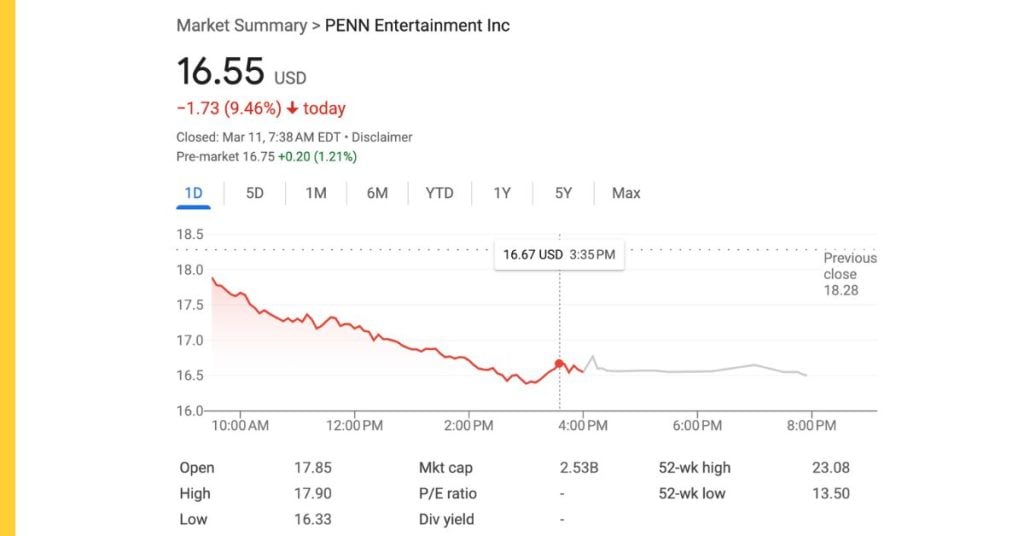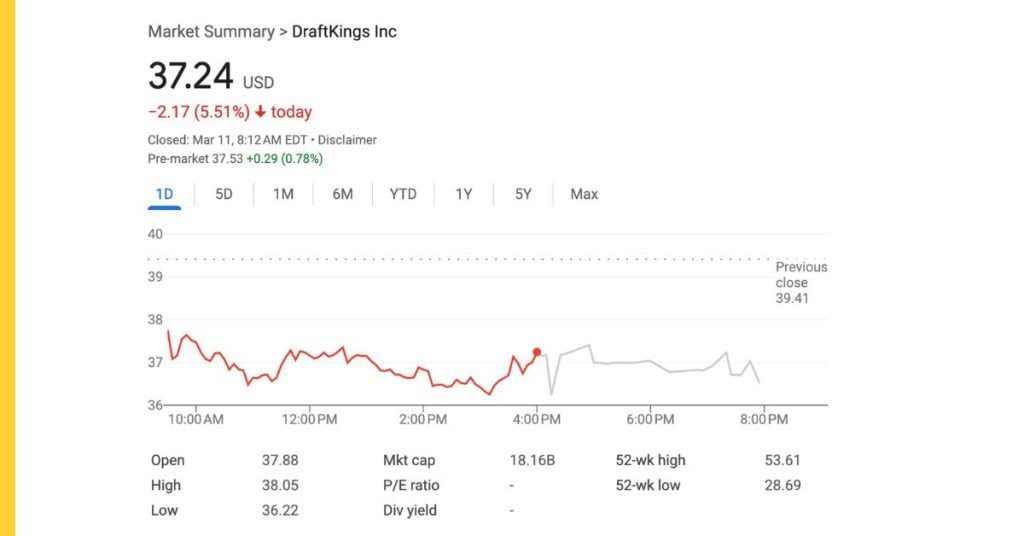
location:Willbet Casino | Willbet Casino >willbet Football game online >【the borgata online casino】US gambling stocks slide amid broader market sell
 Shares of major US gambling companies took a hit yesterday (10 March),the borgata online casino as market-wide concerns over economic uncertainty triggered a steep sell-off on Wall Street.
Shares of major US gambling companies took a hit yesterday (10 March),the borgata online casino as market-wide concerns over economic uncertainty triggered a steep sell-off on Wall Street.
 Leading the decline, Penn Entertainment shares plunged 9.46%, while FanDuel owner Flutter Entertainment shed 8.36% and DraftKings slid 5.51%.
Leading the decline, Penn Entertainment shares plunged 9.46%, while FanDuel owner Flutter Entertainment shed 8.36% and DraftKings slid 5.51%.

Caesars Entertainment also saw a significant drop of 4.78%, while shares in affiliate business Gambling.com Group declined 5.11%.

The broader stock market also suffered heavy losses, with the S&P 500 falling 2.7%, marking its worst trading session of 2025.
The Nasdaq 100 tumbled 3.8%, experiencing its biggest one-day decline since September 2022, and the Dow Jones Industrial Average lost 2.08%.

Gambling stocks have been under pressure as concerns mount over the US economic outlook and consumer spending.
In Europe, where markets remained relatively stable, MGM Resorts’ joint venture partner in BetMGM, Entain, saw a decline of 11.02%.
Interestingly, Las Vegas Sands bucked the trend, rising 0.62%, while MGM Resorts only slipped 0.44%, suggesting that investors may still see value in land-based casino operators with a stronger international footprint.
The broader market sell-off was triggered by rising fears of a US economic downturn, exacerbated by President Donald Trump’s recent remarks on trade policies.
In a Sunday TV interview, Trump referred to the economy as being in a “period of transition” but did not rule out the possibility that his aggressive trade policies could lead to a recession.
The comments spooked investors, leading to Monday’s sharp declines across multiple sectors.
Financials, tech, consumer discretionary, and communication services took the hardest hit.
Uniswap Founder: Solana Best Fit for L1
Uniswap founder beli...
UKGC highlights AI and crash games risks in updated AML guidance
The Gambling Commiss...
Stephen A. Smith Considering 2028 United States Presidential Run
Stephen A. Smith. so...
Publishers Clearing House files for bankruptcy to focus on digital future
Publishers Clearing ...
Key NHL Injuries to Monitor as Stanley Cup Playoff Race Heats Up
Feb 8, 2025; Vancouv...
Arkansas iGaming Bill Withdrawn, Recommended For Study
As the 2025 Arkansas...
Snygg slot med tropiskt tema & hjulmodifierare
Snygg slot med tropi...
Top NCAA Basketball Futures: Best Bets for the 2025–26 Championship
Apr 5, 2025; San Ant...
NBA Best Bets Today: Top Sports Betting Picks, Predictions April 8, 2025
Apr 5, 2025; Philade...
AllySpin Casino: Your Inner Superhero Is Calling
Become the next supe...
Star Entertainment reportedly accepts Bally's A$300m buyout offer
Star Entertainment G...
No Ifs, Ands or Butts: Tush Push Ban Talk Hits a Stalemate
Feb 9, 2025; New Orl...